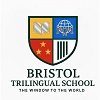Extra-Curriculium
Project-Based Learning (PBL)
At Bristol Trilingual School, Project-Based Learning (PBL) is a cornerstone of our educational approach, fostering active inquiry and collaboration through real-world, purposeful projects. Our PBL framework encourages students to explore complex challenges while integrating academic knowledge from various disciplines. Students develop critical thinking, creativity, and social responsibility, grounded firmly in global awareness and sustainable practices. Teachers guide and facilitate each project, supporting students in meaningful reflection and presentation of their discoveries.

Grade K1-K3: Discovering Our ClassroomCommunity
Young learners explore their immediate environment—the classroom and school community—through sensory exploration and simple data gathering. Projects include creating maps of their learning spaces, interviewing classmates, or documenting daily routines. These activities nurture social skills, observation, and curiosity, enabling early development of communication and collaborative problem-solving.
Grade 1: Our School’s Story
Students investigate the history, values, and culture of Bristol Trilingual School. By interviewing teachers and peers, collecting stories, and creating presentations or mini-exhibits, students learn to appreciate their school environment and community. This project strengthens social-emotional growth, language skills, and respect for cultural diversity.
Grade 2: Healthy Habitats
Focused on local ecosystems, students study nearby gardens or green spaces to learn about the needs of plants, animals, and insects. They document living things, monitor environmental conditions, and design simple habitat models. This hands-on project develops observation, scientific inquiry, and environmental stewardship.
Grade 3: Waste Awareness Campaign
Students analyze school waste management practices and investigate the impact of different types of waste on the environment. They collect data on recyclables, non-recyclables, and compostables, then design creative awareness campaigns to encourage sustainable waste habits among peers and community members.
Grade 4: Water Wise
This project centers on water conservation and quality. Students explore the water cycle, test water from different sources, and research local water use. They propose and implement water-saving strategies within the school or home, fostering scientific thinking, problem-solving, and responsible citizenship.
Grade 5: Sustainable Food Production
Students examine local food systems by investigating sustainable agricultural practices, urban farming, or vertical gardens. They experiment with planting techniques, track growth data, and evaluate the benefits of sustainable food sources. This project integrates biology, economics, and ethical consumerism.
Grade 6: Entrepreneurial Eco-Project
In this advanced project, students design and implement an environmentally conscious business idea. They conduct market research, develop a sustainable product or service, prepare a business plan, and present to a panel. This PBL develops leadership, financial literacy, marketing skills, and a strong sense of social responsibility.
Each project emphasizes teamwork, inquiry, creativity, and reflection to ensure students not only learn academic content but also develop the skills and attitudes necessary to thrive as responsible global citizens.
Research-Based Learning (RBL)
At Bristol Trilingual School, we emphasize fostering student autonomy and nurturing individual passions through a Research-Based Learning (RBL) framework. This approach empowers students to take ownership of their educational journey by exploring subjects at a personalized pace, allowing accelerated learners to delve deeper into advanced topics while providing additional time and support to those who require it.
The RBL model structures learning so that students independently engage with research, inquiry, and content exploration outside of class time. Classroom sessions are then dedicated to collaborative discussions, critical analysis, and the resolution of challenging concepts. During these meetings, educators facilitate dialogue to ensure comprehension, address questions, and introduce new areas of study.
This method cultivates essential skills such as self-discipline, critical thinking, and independent problem-solving, preparing students to manage their learning effectively and develop lifelong academic habits.
